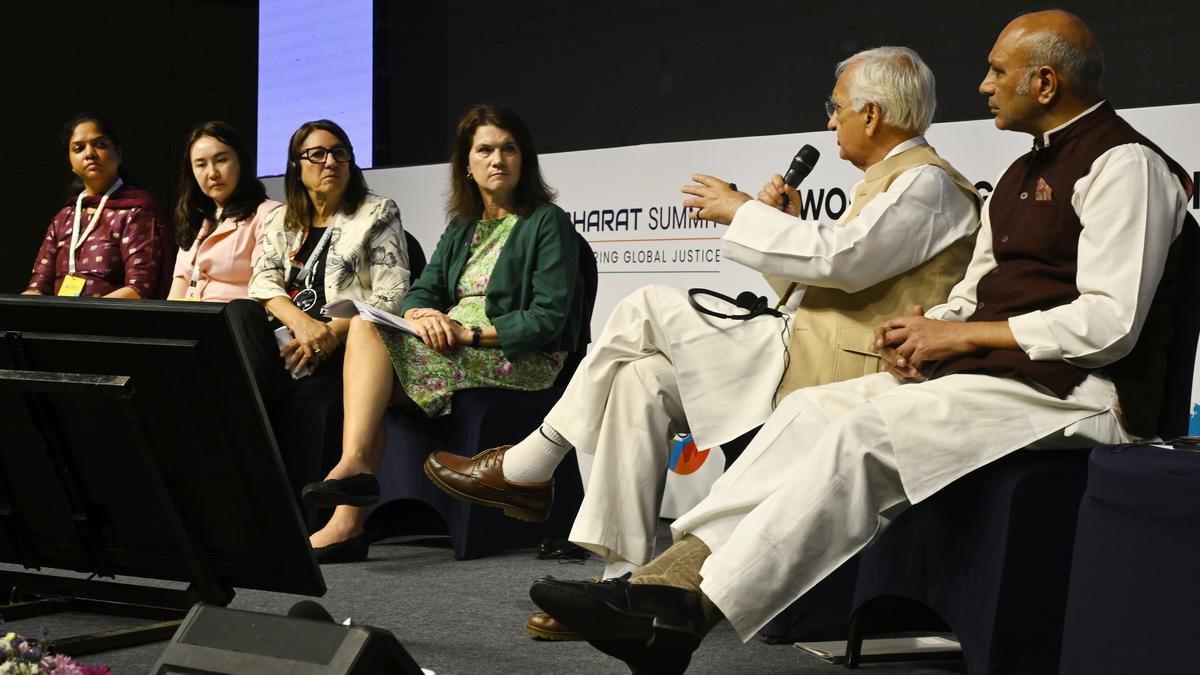Congress leaders Salman Khursheed, former Union Minister Pallam Raju and women panelists Parnika Reddy, Monica Fein, Undram Chinbat, and Ann Linde, at a panel discussion on ‘Gender Justice and a Feminist Future’ during the Bharat Summit, in Hyderabad on Friday.
| Photo Credit: NAGARA GOPAL
Hyderabad
Invisibilising women in policy making, sexual harassment, women in STEM education and advocating tax incentives that would lead to an increase in women’s employment, were key areas of discussion at the Bharat Summit in Hyderabad on Friday.
‘Gender Justice and a Feminist Future’, a panel discussion, saw Minister for Women Affairs, Republic of Panama, Maria Alejandra Panay, underscoring the challenges that women in Latin America face, including sexual harassment.
“One in three women experience sexual harassment. And many indigenous, migrant, and young women remain invisible in mainstream policy making,” she said.
Others like Argentinian politician Monica Fein touched upon the importance of a more inclusive leadership, and women in leadership positions. “We just don’t want to support men — we want to lead. Leadership and equality must include gender-diverse individuals and the systems that support them,” she said.
Rabia Abdallah, a senior CCM party leader from Tanzania, spoke of the value of cross-regional dialogue and importance of embedding women’s leadership in political structures to ensure sustained global justice.
While former Union Minister and senior Congress leader Salman Khurshid raised concerns over a lack of female participation in workforce, especially in infrastructure development, he suggested measures like tax incentives for changing this.
Right laws, right mindset, right men
“Women must be part of every sector. The answer is not just the right laws, but the right mindset, and the right men who stand for this cause,” he opined.
Former Union Minister for Human Resources Development M.M. Pallam Raju said that the Mahalakshmi scheme that provides free bus rides to women, the Mahatma Gandhi National Rural Employment Guarantee Act, and the Right to Education Act were important in bringing about change. He also pointed out the importance of educating the girl child.
Former Swedish Foreign Minister Ann Linde explained the challenges that Europe was facing such as decline in birth rate. She called for reforms in taxation policies and indicated the urgent need for universal access to child care. “If families cannot combine work and parenting, gender equality will remain out of reach,” she said.
Published – April 25, 2025 07:38 pm IST






